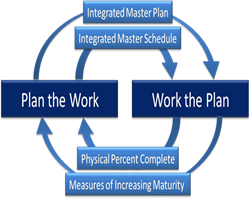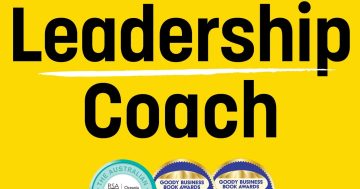Work is not what work was only a few years ago and according to Hays workers need to take ownership of their own learning journey if they’re to get anywhere.
 The past few years have seen an unprecedented amount of change in the tasks we perform at work, and each year disruptions continue to increase in numbers and impacts.
The past few years have seen an unprecedented amount of change in the tasks we perform at work, and each year disruptions continue to increase in numbers and impacts.
This year, most of us have encountered the emergence of AI and realised it’s potential to disrupt some of our job tasks, but other emerging technologies, new industries and wide-spanning demographic changes are creating cause for concern when it comes to the skills we will need to learn to future-proof our careers. This pace of rapid change means that we will all need to adopt a larger amount of individual responsibility for our learning journeys.
What do we need to learn?
It’s hard to imagine what tasks we’ll be performing in our roles in five or 10 years’ time, but there are a number of skills that you can learn now that will keep you employable no matter what the job is.
The recent Hays Salary Guide FY23/24 revealed that the skills employers are looking for in the future include critical thinking, agile leadership, soft skills, digital literacy, flexibility, a learning mindset and data literacy. These aren’t specific technical skills such as being able to code in Python or create a PowerPoint presentation, but more ambiguous traits that individuals can learn and foster – and skills that can’t be automated out of jobs.
How do we learn?
We learn new skills in different ways, some prefer to learn by doing, others take on new information by reading – typically, there are four different ways of picking up new capabilities.
Visual: Visual learners are best able to take on new information when it’s presented through diagrams, illustrations and charts and taking detailed notes.
Auditory: This type of learner absorbs information by listening and talking through new topics with other people, they also often recall information better if they read something out loud.
Kinaesthetic: Some learn best by doing, participating in activities and actively looking for solutions as the best ways to retain new information.
Reading and writing: Writing new information down after reading it, rephrasing paragraphs of text, making notes and describing information through statements is the best way for these learners to retain knowledge.
Be mindful, just because you’ve picked up a skill one way, doesn’t mean that is the only way you can learn. Often a combination of the above techniques can be useful.
Try out different methods like creating charts or reading information you’ve written out loud to find new ways of learning.
Learn anywhere, anytime
It’s easier than ever to devise ways to embed learning into our everyday lives.
The huge amount of information that’s now available to all of us, often sitting in our pockets, can unlock upskilling opportunities at every step. The proliferation of online courses now available makes learning during the flow of work easier than ever with Hays Learning offering thousands of free, online courses.
You can also listen to podcasts, watch YouTube tutorials or simply read a book. The barriers to learning have been broken down so efficiently, that there’s not much stopping you from effortlessly picking up new skills. By being constantly curious about the how, what and why of the world, you can start to embrace learning into your daily activities.
Embedding skills
During our school years, exams were used to ensure lessons were learnt, and while there may still be an assessment during any formal learning programs, the best way to make new skills stick is to simply do, repeatedly. Most of the knowledge in our brains is a result of effort and a lot of repetition.
Implementing new lessons into your usual workday, or asking your manager for an opportunity to work on a new project that will help you use the skills is effective in realising the benefits back to your career. Let you manager know that it’s a new skill, and ask for guidance on what to do if things don’t end up going as planned to create a safe environment to try your skills without fear of failure.
So, what’s the plan?
Most importantly is the need for you to take ownership of your own learning journey and be responsible for your capacity to keep upskilling.
A work revolution is coming so to keep up, place an emphasis on not only working but connecting with others around you. Actioning this will enable you to develop the enduring skills you need to add true value to your workplace no matter what transformation emerges.
*Hays offers a suite of recruitment and workforce services.
This article first appeared at hays.com.au











